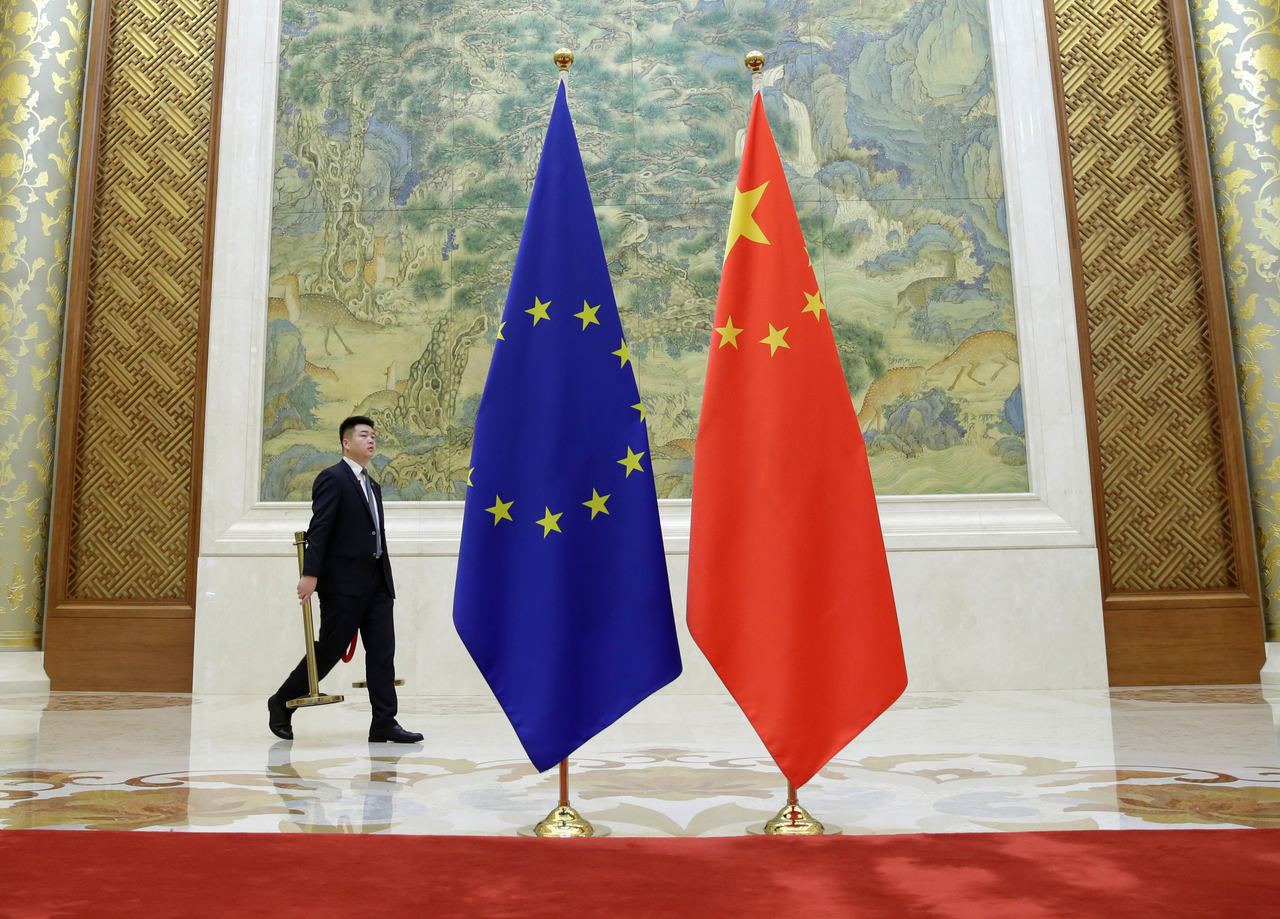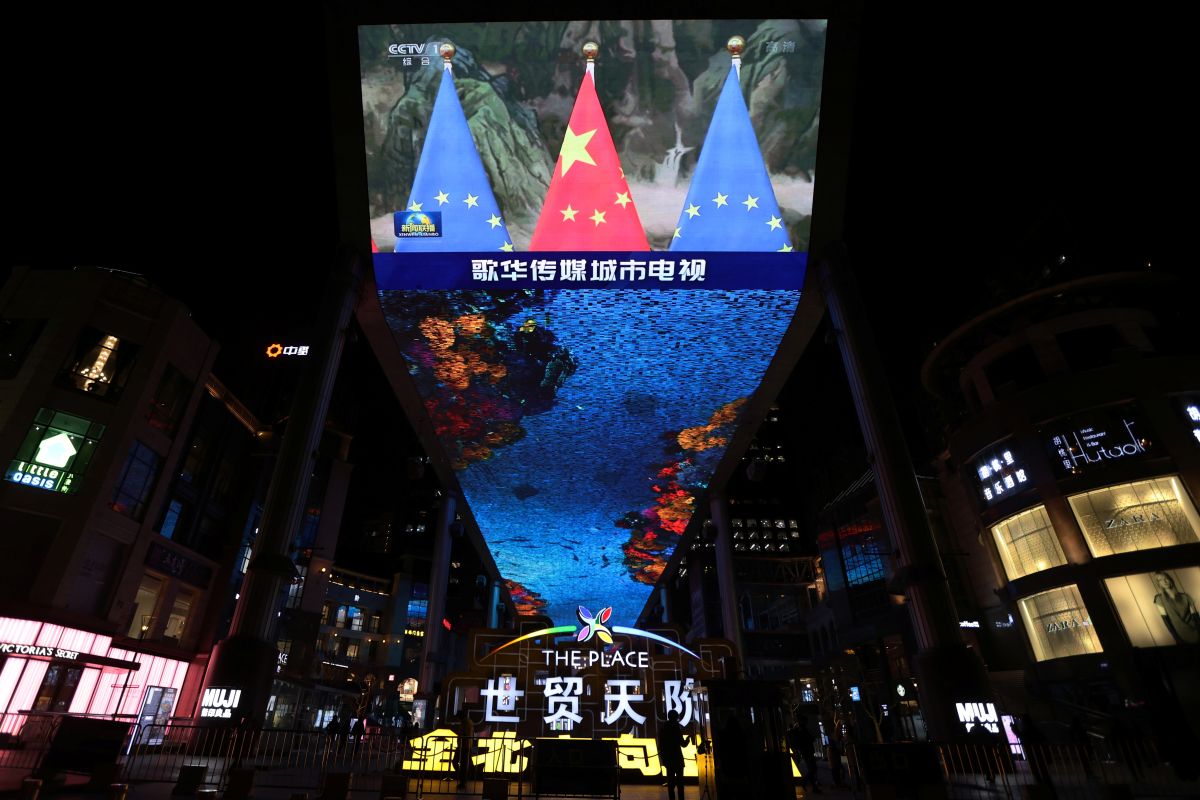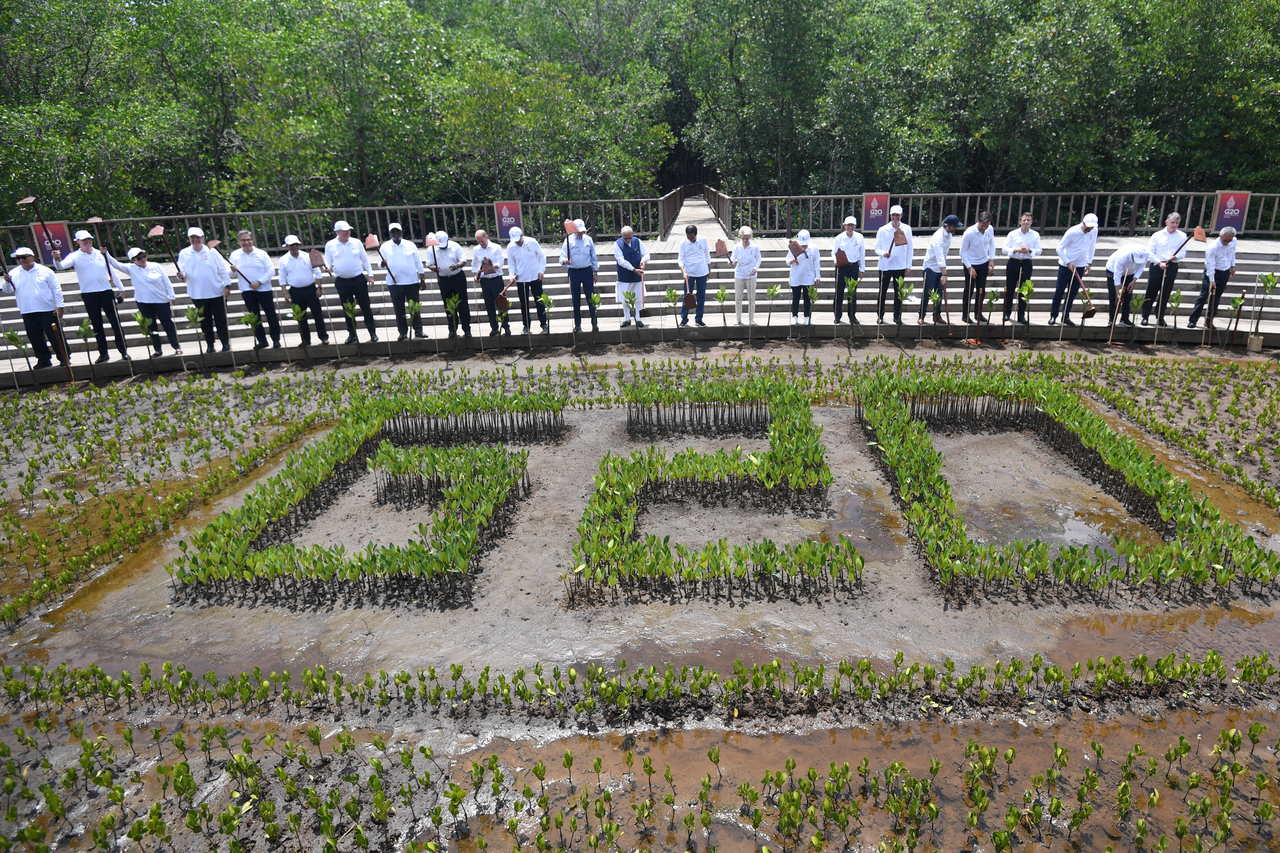European Council President Visits Beijing
The first direct meeting between Charles Michel, the president of the European Council, and the China’s Chairman Xi Jinping, which took place on 1 December in Beijing, does not mean there will be an improvement in EU-China relations. Both sides presented a catalogue of differences on various issues, but emphasised the need for cooperation. China’s policy goal is still to weaken the cooperation between the EU and the U.S., as well as convincing the EU of China’s readiness to act to end the Russian aggression against Ukraine. The president of the European Council referred positively to strengthening cooperation, but emphasized that there are contentious issues concerning, among others, the assessment of trade issues and Russia’s policies.
 JASON LEE/Reuters/Forum
JASON LEE/Reuters/Forum
What were the circumstances of the meeting?
The European Council president arrived in Beijing just over a month after the end of the 20th Congress of the Chinese Communist Party (CPC), the second European leader to visit China since the Congress after German Chancellor Olaf Scholz. The meeting took place during the ongoing protests in China against the government’s zero-COVID policy, as well as a few days before the third meeting of the EU-U.S. Trade and Technology Council. The EU planned that the first face-to-face conversation between the leaders since Michel became head of the European Council (EC) in 2018 would take place in mid-November at the G20 summit in Bali. The Chinese did not agree to this time frame, however, and wanted to focus first on bilateral meetings with the leaders of several EU countries, including France, Italy, and the Netherlands. In return, a separate visit by Michel to China on 1 December was agreed.
Why did Michel visit China now?
For the head of the European Council, it was important above all to present the EU’s readiness for dialogue with China, but taking into account issues important to the EU and the tensions in relations between the two, including in economic cooperation, respect for human rights, and the Chinese stance on the Russian aggression against Ukraine. Michel drew attention to the still limited access of EU entities to the Chinese market. He highlighted the problems for European companies and EU citizens resulting from the zero-COVID policy, as well as the freedom to assemble for Chinese people in the context of the ongoing protests. The president of the European Council pointed to the EU’s respect of the “one China” policy, but stressed the need to stabilise and maintain the status quo in the Indo-Pacific. He also expressed the EU’s interest in the situation in Xinjiang and Hong Kong, noting that it was not interfering in China’s internal affairs, but paying attention to UN principles. He said the EU appreciated the willingness of China to resume the EU-China dialogue on human rights. Michel also strongly pointed out Russia’s responsibility for violating international law by its aggression against Ukraine and appealed to China as a permanent member of the UN Security Council to exert influence on the Russian Federation in order to end the war. The European Council president also emphasised that China must oppose Russia’s threats to use nuclear weapons.
What did China seek to achieve?
For Xi, the meeting after the 20th CPC Congress served to emphasise China’s willingness to continue cooperation with the EU based on the concept of strategic autonomy. In this context, he mentioned the need to abandon a “Cold War mentality”, which he said is present in the U.S. He also pointed to possible cooperation with the EU in the field of climate change or creating synergies between the Belt and Road and the EU’s Global Gateway programme. Xi emphasised the positive dimension of bilateral trade relations as key to the condition of the Chinese economy. The chairman’s positive tone towards the EU is also partly to discourage it from tightening cooperation with the U.S., for example, regarding sanctions imposed on the Chinese semiconductor production industry.
Xi also emphasised the importance of resuming Ukrainian-Russian negotiations, as well as the role of the EU as a possible mediator and negotiator of a new security architecture in Europe. The mediation potential of the EU and support for this idea were punctuated by Xi not only during Michel’s visit, but also in the November meetings with the prime minister of Italy and the president of France at the G20 summit in Bali. In the current situation, Xi’s concept would mainly serve the interests of the Russian Federation and would have a negative impact on the EU’s relations with the U.S. and Ukraine.
What are the results of the visit and how will it affect EU-China relations?
The meeting did not bring measurable results, apart from a rather vague declaration by the Chinese on their readiness to resume the dialogue on human rights. The parties mainly presented a catalogue of differences, but declared their readiness to engage in dialogue and strengthen cooperation. Michel’s conciliatory stance showed that China has managed to convince some European leaders to soften the European Commission’s strong policy towards China. The EU is convinced that reducing economic dependence on China is important, but in the current situation there is no agreement for a complete “disengagement” on either side. China is trying to strengthen this approach by taking advantage of the differences of opinion of EU institutions, facilitated by the fact that the president of the European Council came to Beijing for talks without the presence of European Commission (EC) President Ursula von der Leyen (while previous, virtual meetings with Chinese leaders were held in a duo). It was the EC that initiated, for example, the introduction of mechanisms protecting the EU market against, for example, unfair Chinese trade practices.





